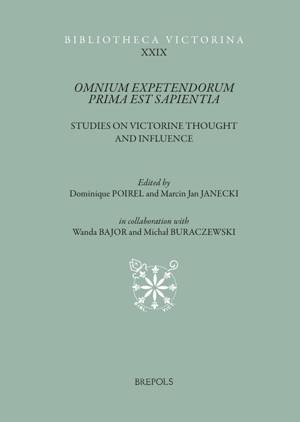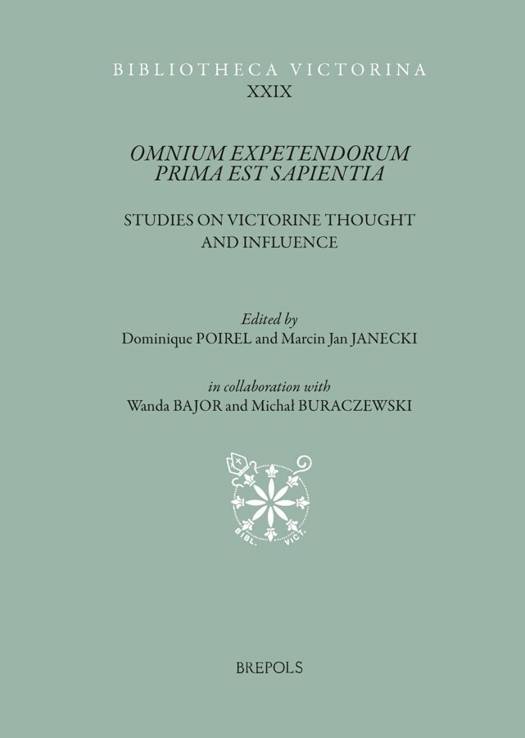
- Retrait gratuit dans votre magasin Club
- 7.000.000 titres dans notre catalogue
- Payer en toute sécurité
- Toujours un magasin près de chez vous
- Retrait gratuit dans votre magasin Club
- 7.000.000 titres dans notre catalogue
- Payer en toute sécurité
- Toujours un magasin près de chez vous
Omnium expetendorum prima est sapientia
Studies on Victorine thought and influence
Dominique Poirel
Livre relié | Français
106,00 €
+ 212 points
Description
Founded at the beginning of the twelfth century on the outskirts of Paris, the Parisian school of Saint-Victor soon became an intellectual centre on a European scale: through the international recruitment of its masters, Hugh, Achard, Richard, Andrew, Godfrey, Thomas Gallus and many others; through the wide handwritten dissemination of their works, in particular those of Hugh and Richard; and finally through the extent of its doctrinal contribution to a common European culture, on a large number of points: the importance, before specializing, of acquiring a general culture according to an encyclopedic curriculum rooted in classical and patristic traditions; the need for a rigorous historical approach to biblical texts, open to rabbinic exegesis, before moving on to their allegorical or moral interpretation; a contagious interest in the writings and thought, hitherto largely neglected, of the pseudo-Dionysius Areopagita; a major contribution to the constitution of a theological discipline, distinct from both exegesis and philosophy; an effort to reconcile rigour in doctrinal speculation, fervour in spiritual life and psychological finesse in the analysis of contemplation and its stages. In short, a curiosity for all fields of knowledge and, at the same time, an effort to unify them into a universal and unified wisdom explains the role, direct or indirect, played by the masters of Saint-Victor in the constitution of a common European thought, at the time of medieval universities and beyond. The Book gathers new studies on original sources concerning Hugh of St. Victor, as the intellectual founder or the Victorine school; several of his Victorine brothers and disciples: Richard, Achard, Andrew, Godfrey, Absalon, up to late and little known Victorine masters as Pierre Leduc and Henri le Boulangier, at the time of the Great Schism (with critical edition of inedited texts); their influences on twelfth century texts as Ysagoge in theologiam or Speculum Ecclesiae, on Franciscan authors including Antony of Padua, Bonaventure, Rudolf of Biberach, and Duns Scotus, on romance literature of troubadours, on Carmelite authors of the sixteenth centruy and - a still uncharted territory - on Polish culture from Middle Ages to contemporary times.
Spécifications
Parties prenantes
- Auteur(s) :
- Editeur:
Contenu
- Nombre de pages :
- 550
- Langue:
- Français
Caractéristiques
- EAN:
- 9782503596501
- Date de parution :
- 30-12-21
- Format:
- Livre relié
- Format numérique:
- Genaaid
- Dimensions :
- 186 mm x 260 mm
- Poids :
- 1247 g







